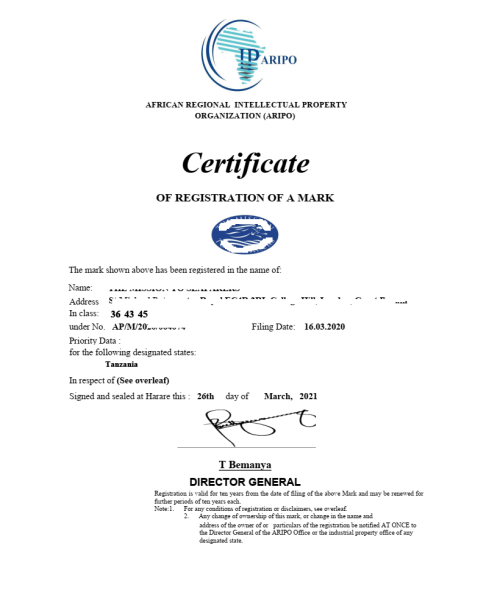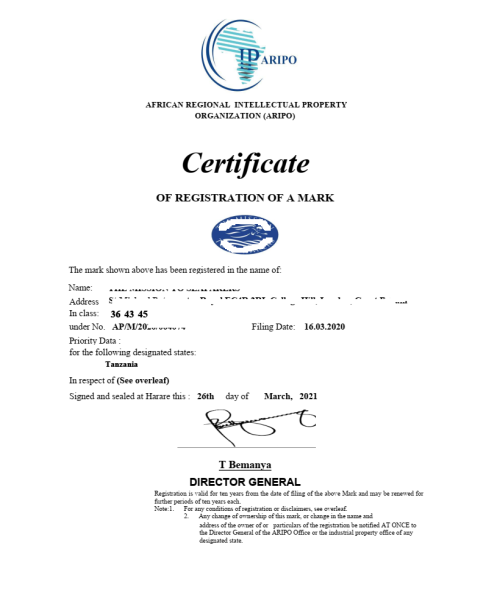Trademark Registration ARIPO
Registration of your ARIPO-trademark is currently possible in the following member states of ARIPO: Botswana, Kingdom of Eswatini (Swaziland), Lesotho, Liberia, Malawi, Namibia, Sào Tomé and Príncipe, Tanzania, Uganda, and Zimbabwe.The price includes our professional fees as well as all official fees for the registration of the trademark without opposition.
| Flat fee incl. official fees | Yes |
|---|---|
| Fee additional class | EUR 50.00 |
| Classes included | 1 |
| Multiple classes possible | yes |
| Protection Period (years) | 10 |
| International Registration possible | No |
| Power of Attorney must be notarized | No |
| Legal Advice | Yes |
| Process Duration (est. in months) | 15-18 |
Trademark Registration ARIPO
With this assignment you can order a trademark registration in ARIPO. We will take care of everything that is necessary for the professional preparation of the trademark registration in ARIPO, submission of the trademark application in ARIPO and send the trademark certificate to you.
The price for trademark registration in ARIPO includes our professional fees as well as the official trademark office fees for the trademark registration in ARIPO without opposition.
The trademark registration order for ARIPO includes the following tasks:
First, we check whether the trademark being registered is entitled to protection in ARIPO (absolute grounds of refusal). Not all trademarks can be registered as trademarks. For instance, merely descriptive terms for the respective goods and services may not be registered as a trademark.
To avoid collisions between your trademark registration in ARIPO and older trademarks we recommend to conduct a trademark search in ARIPO which must be ordered separately.
We will e-mail you the prepared trademark registration documents for ARIPO for your approval and file it then.
Once the trademark was registered in ARIPO we send you the certificate.
Country specific trademark law regarding ARIPO
I. Participating Countries
- Botswana, Kingdom of Eswatini (Swaziland), Lesotho, Liberia, Malawi, Namibia, Sào Tomé and Príncipe, Tanzania, Uganda and Zimbabwe signed the Banjul Protocol, however, not all of these countries already implemented national regulations to accept ARIPO trademarks
II. Required documents
- PoA
III. Application Procedure
- application is filed with ARIPO office, one or more designated states may be chosen
- filing through national offices in the designated states is possible as well
- formal examination only, no search for prior rights by ARIPO office
- ARIPO will transmit applications to the national offices, granting a 12-months period for the national offices to examine the application
- upon examination, ARIPO will publish the application
IV. Classification
- Nice Classification (42 classes of the international classification of goods and services in Botswana, Lesotho, Namibia, Tanzania and Zimbabwe, whereas Malawi and Uganda only accept the 34 classes of the international classification of goods)
- multi-class applications allowed
V. Opposition
- opposition may be filed at any time between the publication and the registration
VI. Use requirements
- use requirements in accordance with the legislation of the designated states
VII. Duration Period
- 10 years from date of application
VIII. Renewal
- renewable for periods of 10 years



